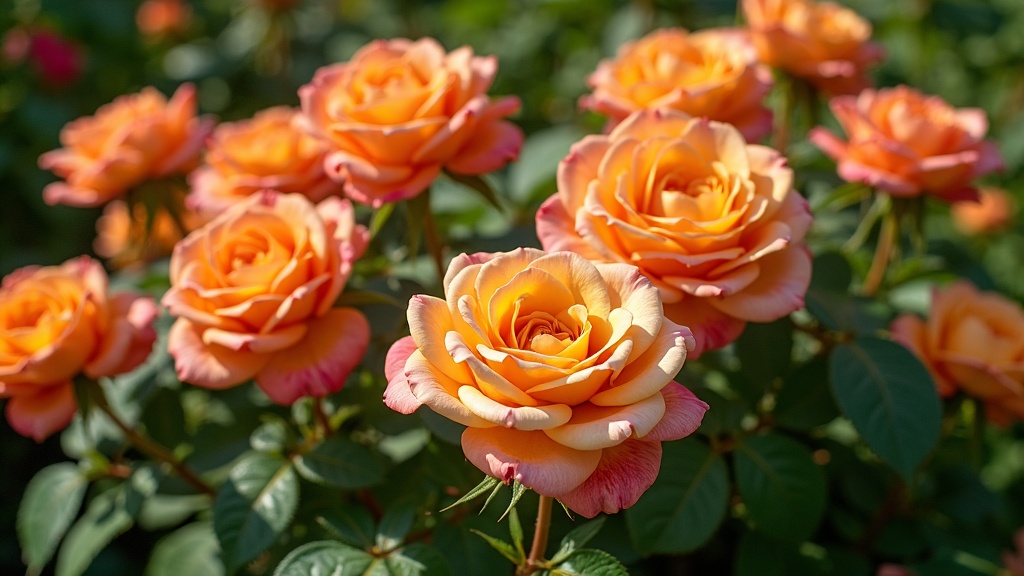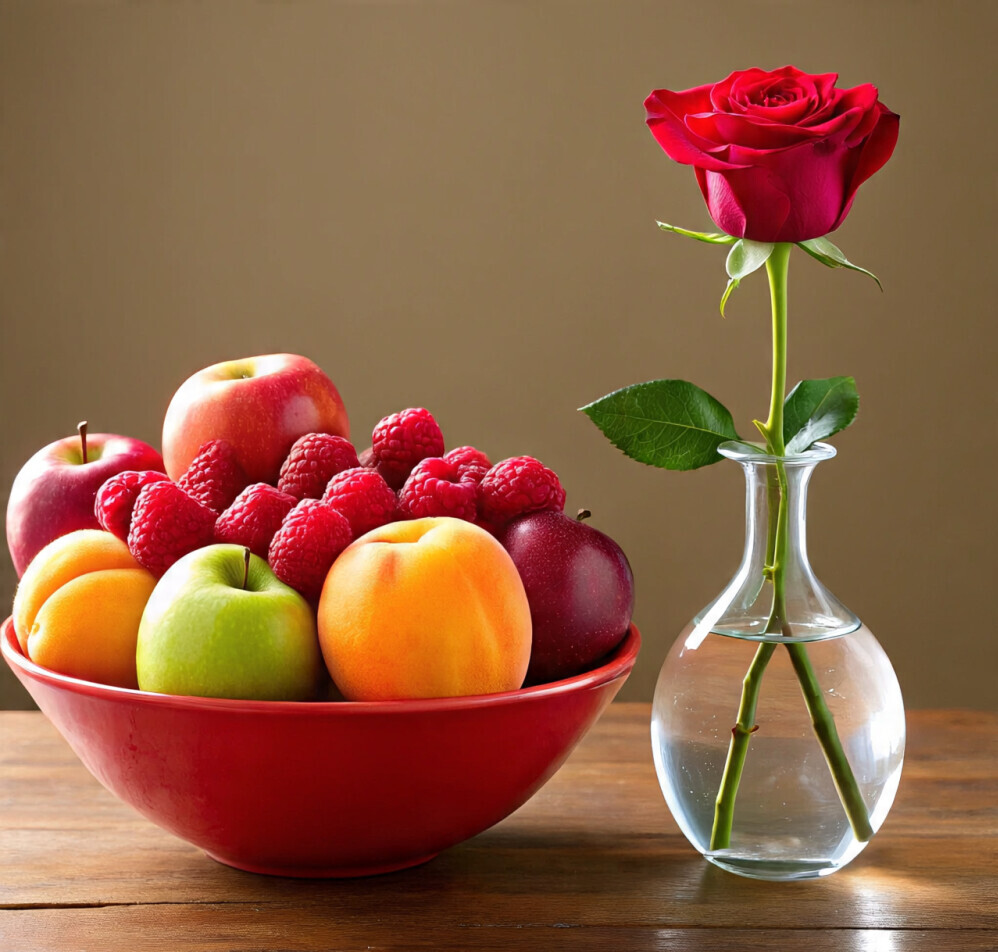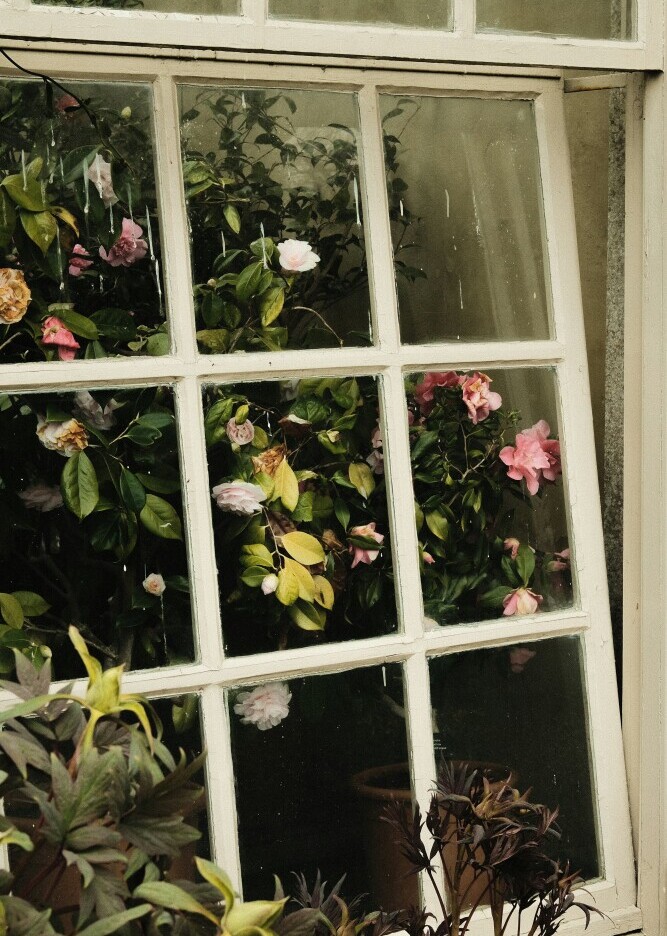Imagine yourself surrounded by roses that smell like crisp apples, juicy peaches, or bright tangerines.
That’s not just a simple daydream. Fruity scented roses are now making these sensory moments a daily reality in modern gardens.
As rose hybrids keep switching it up, these sweet, lively, and vibrant fragrances have shown up in all kinds of spaces, from home gardens to high-end bouquets.
Fruity roses are perfect for anyone craving a fresh twist on classic flowers, and their scents are truly changing what people expect from their rose beds.

What Makes Fruity Roses Smell So Good?
The fruity rose fragrance family brings together sweet, lively, and slightly tangy notes.
Where older roses carry that familiar deep, powdery “rose” smell, these newcomers pack in hints of peach, raspberry, apple, and citrus.
The result is a refreshing, spirited aroma that breathes life into any garden.
Some fascinating chemistry is happening behind these scents.
Fruity roses get their aroma from compounds like ionones (which offer up violet and berry vibes), esters (which bring fresh apple and pear notes), and unique alcohols that add a crisp edge.
Rose breeders have spent years selecting varieties with just the right blend for modern gardens.
These blooms keep popping up in both gardens and floral shops, and it’s clear why—the scent is fun, current, and uplifting in a way that the usual “rose” aroma can’t always match.
Fruity Rose Varieties Worth Checking Out
If you want roses bursting with fruity goodness, you’re spoiled for choice. Here are some true standouts for gardens and bouquets:
- Jude the Obscure (David Austin): Well-known for a powerful, almost tropical guava scent in creamy apricot petals. In my own garden, Jude the Obscure immediately grabs attention thanks to its bold fragrance.
- Lady Emma Hamilton: One to check out for a citrus and pear aroma that jumps out at you. The copper orange petals are as eye-catching as the delicious scent.
- Golden Celebration: This English shrub delivers a honey and apricot bouquet. When the breeze kicks up, it fills the air with a syrupy richness that’s impossible to miss.
- Abraham Darby: A staple that blends raspberry and lemon—fresh, light, and perfect for those lazy summer days.
- Evelyn: With soft peach and tea notes, it’s no wonder this rose is a favorite for artisan perfumers.
- Charles Darwin: Warm fruitiness paired with a gentle musk under those deep yellow petals delivers a mellow, comforting aroma.
Plus, new fruity scented roses show up every season.
Many rose catalogs highlight “fruit,” “citrus,” or “berry” in their descriptions, so screen fragrance notes closely when picking plants for your garden or bouquet.
What’s Special About Fruity Roses?
Roses that deliver not just stunning visuals but also playful, energizing fragrances stand out in any collection.
Gardeners increasingly choose fruity roses for their modern, lively scent. Unlike the heavier Damask or “grandma’s perfume” vibes, these roses offer a light and sweet aroma that’s easy to enjoy every day.
Many fruity roses surprise by offering repeated waves of scent all season, not just a quick burst of bloom.
Since these cultivars often flower for months, you get to enjoy their fragrances again and again.
Enthusiasts love how these roses mix bold looks with unexpected scents.
If you’re looking to step up your rose bed or want to give your landscape a bit of extra fun, fruity varieties provide an easy upgrade while keeping all the beauty and charm roses are famous for.
How to Grow Fruity Roses for the Best Fragrance
To really get the richest scents from your fruity roses, smart planning is key. Here’s what works best for most gardeners:
- Soil: Go with rich, well drained loam plus loads of organic compost. Good dirt holds nutrients and helps boost those scent compounds.
- Sunlight: Roses thrive on six to eight hours of direct sun a day. More sunshine means bigger blooms and stronger smells.
- Fertilizing: Apply an organic rose fertilizer every spring and repeat during active growth. Look for products with extra potassium and phosphorus for more blooms and more scent.
- Watering: Deep watering (about once or twice a week) builds strong roots and keeps fragrances intense. Skip the shallow watering if you want maximum scent.
- Pruning: Cut off faded flowers (deadheading) to keep fresh buds coming. Pruning in late winter or spring increases airflow and makes for fuller, more scented blooms.
No two gardens are the same, but if you stick to these basics, your fruity roses will thrive and hit their aromatic peak.
Climate and Greenhouse Tips for Fruity Roses
Fragrance in roses always peaks in comfy, steady conditions. Here’s what helps fruity fragrance stand out whether your roses are outside, in pots, or in a greenhouse:
- Consistent temperature: Fragrant roses love steady temps between 18 and 25°C (about 65 to 77°F). This keeps fruity compounds strong and vivid.
- Humidity: Moderate humidity lets fragrance linger. Too much dry air makes scents disappear fast.
- Gentle air movement: Keep ventilation gentle. That keeps disease away but also prevents the aroma from getting blown right out of the garden or greenhouse.
- Warm, not hot: When it gets over 30°C (86°F), those precious fragrance compounds start breaking down faster, so plant where you can give some afternoon shade during heat waves.
If your climate runs to extremes, containers give you much more control. Moving pots into shelter during heat or cold spikes keeps scents as strong as possible.
Top Ways to Use Fruity Roses
The versatility of fruity roses opens up lots of possibilities. Here are a few creative ideas to put them to work at home:
- Line walkways and patios: Placing roses beside high traffic paths or outdoor seating pulls the aroma right to where people gather, making each stroll a treat.
- Fresh bouquets and table displays: Fruity roses maintain their scent indoors, making them a hit for parties, weddings, or everyday arrangements.
- Homemade potpourri and rose oil: Dry petals or use roses to infuse oils for adding a unique, fruity twist to home scents, drawers, or personal care products.
You can use them in almost any landscaping situation.
Kids love the playful, sweet aromas; city dwellers appreciate sandwiches of scent on balconies; plus, edible landscapes get an exciting twist with fruity varieties.
Recommended Products for Growing Fruity Roses
For anyone ready to jump into growing fruity roses, a few simple products can really make life easier and boost your success:
- Top rose varieties: Jude the Obscure, Lady Emma Hamilton, and Golden Celebration are widely available online or at local nurseries.
- Organic rose fertilizer: A solid organic blend packed with potassium and phosphorus will supercharge bloom and scent production.
- pH and moisture meters: If you’re trying containers or tough soil, these help ensure consistent growing conditions for maximum fragrance.
- Specialty rose books and guides: Great for tracking down rare fruity types and learning deep-dive tips from rose experts.
- Greenhouse tunnels: Good for protecting your roses during the harsh winter days.
- Drip irrigation system: Perfect for controlled watering and fertilizer application.
Just a few key products can smooth the way and make caring for your roses fun and successful.
N/B – Some of these links are Amazon affiliate links, which help support the site at no extra cost to you.
Frequently Asked Questions About Fruity Roses
Fruity roses spark lots of interest, which means gardeners often have questions. These are the top ones I run into and my advice from personal trial and error:
Which roses have the strongest fruity scent?
Jude the Obscure, Lady Emma Hamilton, and Abraham Darby are true standouts. For showstopping fragrance, try one of these first.
How do I make my fruity roses smell even stronger?
Healthy plants are the key. Provide great soil, regular feeding, and strong sunlight to help roses pump out those scent compounds. Deadhead blooms and water well, especially if using pots. Don’t let roots dry out or get crowded, or you’ll lose fragrance power.
Will fruity roses lose their scent in really hot weather?
Yes, high heat and dry air can make fragrances fade faster. Sniff the roses in early morning or late evening for best results. Some afternoon shade will keep those aroma molecules going longer during heat waves.
Can I grow fruity roses in containers or greenhouses?
Definitely. Large pots (at least 15 gallons for shrubs) work well; use rich, well draining soil. In greenhouses, stick with consistent temps and good humidity, plus airflow to control mildew but keep scent strong.
The Takeaway: Fruity Roses Bring Fresh Life to Any Garden
Adding fruity roses to your space isn’t just about getting extra bursts of color. It means welcoming playful, energizing scents into every corner.
Whether it’s an Abraham Darby in a pot for that crisp, summery aroma or an entire row of Jude the Obscure for a bigger impact, you’ll find a kind of joy in these roses that’s hard to match.
Anyone who loves roses should give a fruity kind a try—your garden will get a modern twist and a dash of zing.
Want something even bolder next?
Keep an eye out for our next feature on spicy scented roses—think clove, cinnamon, and all those bold, warm-smelling varieties that can set your flower beds apart.
Happy gardening!!!!!!!!




Really enjoyed this — totally agree that fruity-scented roses add a fresh twist to a garden. I’ve got one that smells like peach and a bit of guava, and it’s wild how it stands out next to the old-school rose scents. Your tips on keeping the fragrance strong were spot-on too.
Thanks, Andrew. I am glad you enjoyed the post and could relate to the unique charm of fruity-scented roses.
A peach-guava combo sounds amazing – it’s great that you’ve experienced how it adds a modern touch to your garden.
Keeping the fragrance strong is definitely a priority for rose enthusiasts, and I’m happy you found the tips helpful.
Do you have a favorite way of showcasing your fruity roses – in a bouquet, as a garden focal point, or…?